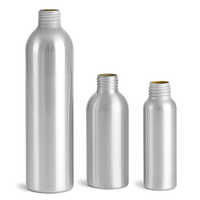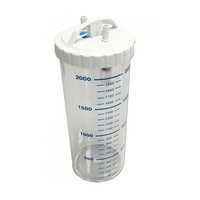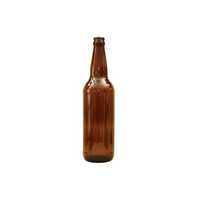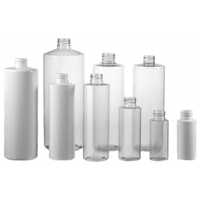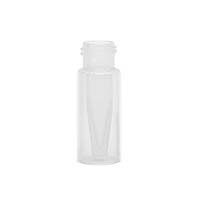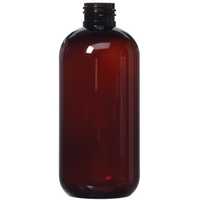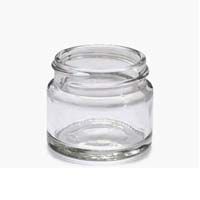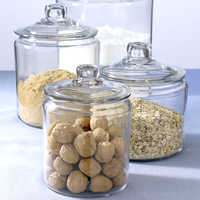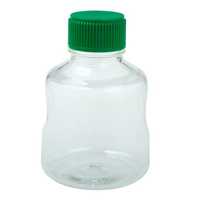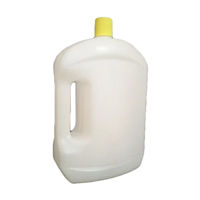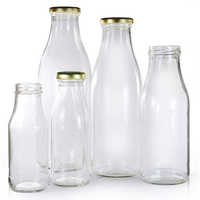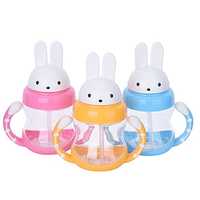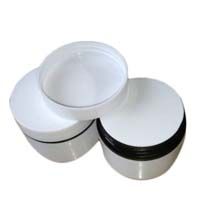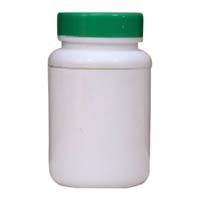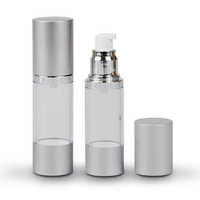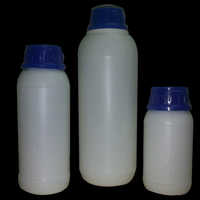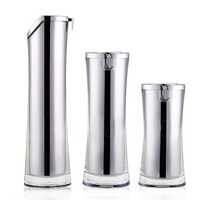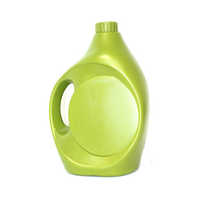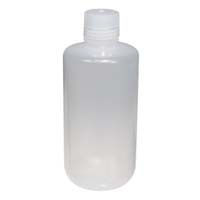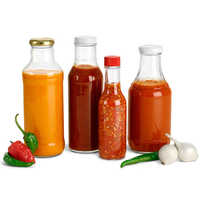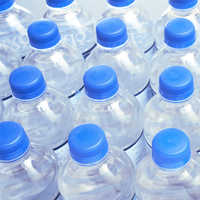Bottles
(28513 products)
Top BottlesCategories
Explore More Categories
NIRLON Motivational Plastic Bottle - AVION - 2000ml
Price: 350 INR (Approx.)/Piece
MOQ - 100 Piece/Pieces
6 Years
Response Rate: 86.54%
Business Type: Manufacturer | Distributor
Nirlon Kitchenware Private Limited.
Indian Inquiries Only
Square Perfume Glass Bottle
Price Trend: 10.00 - 25.00 INR (Approx.)/Piece
MOQ - 3000 Piece/Pieces
Material - Other
Surface Handling - Other
6 Years
Business Type: Manufacturer | Exporter
SYNERGY UV METALLISING
Glass Bottle For Drink & Packaging
Price: 4000 INR (Approx.)/, Bottle
MOQ - 1000 , Bottle/Bottles
4 Years
Business Type: Manufacturer | Supplier
LABH PROJECTS PVT. LTD.
Verified Exporter
( Accepts only Foreign Inquiry)
99.9% Germs Killing Bathroom Toilet Cleaner
Price: 50 INR (Approx.)/Liter
MOQ - 100 Liter/Liters
Detergent Type - Liquid
Usage - Other
Feature - 99.9% Germs Killing
3 Years
Business Type: Manufacturer | Distributor
PTCGRAM PRIVATE LIMITED
Blue Water Bottles
Price Trend: 40.00 - 80.00 INR (Approx.)/Piece
MOQ - 10000 Piece/Pieces
Type - Water Bottel
Product Type - Water Bottle
Material - plastic
8 Years
Business Type: Manufacturer | Exporter
AUTHENTIC PACKAGING PVT. LTD.
Earthen Clay Water Bottle (1.5 L) Capacity: 1.5 Liter/Day
Price: 240 INR (Approx.)/Piece
MOQ - 100 Piece/Pieces
Color - Reddish Brown
Product Type - Water Bottle
Industrial Use - Beverage
8 Years
Response Rate: 82.93%
Business Type: Manufacturer | Distributor
MITTICOOL PRIVATE LIMITED
LOTION BOTTLE
Price Trend: 3-80 INR (Approx.)/, Bottle
MOQ - 5000 , Bottle/Bottles
16 Years
Business Type: Manufacturer | Exporter
TEKNOBYTE INDIA PVT. LTD.
White Vv Series Pesticide Hdpe Bottle
Price: 27 INR (Approx.)/Piece
MOQ - 1000 Piece/Pieces
Product Type - Other, VV Series Pesticide HDPE Bottle
Material - Plastic
Industrial Use - Chemical
13 Years
Business Type: Manufacturer | Supplier
MB Daga Packaging Pvt Ltd.
Indian Inquiries Only
As Per Client Requirements 5Ml Dropper Bottle
MOQ - 10000 Piece/Pieces
Product Type - Dropper Bottles, Other
Size - 5ml
Color - As per Client Requirements
15 Years
Response Rate: 82.69%
Business Type: Manufacturer | Supplier
SHAKO PLASTICK
Alice Flip Flap (4 Pc Set) Capacity: 500 Milliliter (Ml)
Price: 75.00 INR (Approx.)/Set
MOQ - 28 Set/Sets
Color - Red, Green, Blue, Pink
Product Type - PET Bottle
Material - Plastic
12 Years
Business Type: Manufacturer | Exporter
Neelkanth Polymers (Pikaso)
Indian Inquiries Only
Stainless Steel Hot And Cold Robe Flask
Price: 550 INR (Approx.)/Piece
MOQ - 200 Piece/Pieces
Logo - Your Logo Branding Can Be Possible On The Diary
Material - High-quality stainless steel
Usage - Useful At Indoor & Outdoor Office Homes Travel etc
6 Years
Business Type: Manufacturer | Supplier
PANAZONE CORPORATE GIFTINGS
300 ml glass bottle
Price: 15 INR (Approx.)/Bottle
MOQ - 5000 Bottle/Bottles
Product Type - Water Bottle
Material - Glass
Sealing Type - Screw Cap
13 Years
Business Type: Distributor | Supplier
SATYAPRABHA GLASS AGENCY
Copper Bottle Capacity: 750 Milliliter (Ml)
Price: 450 INR (Approx.)/Piece
MOQ - 100 Piece/Pieces
Product Type - Copper Bottle, Other
Material - Copper, Other
Capacity - 750 Milliliter (ML)
5 Years
Business Type: Manufacturer | Exporter
CHIRAG HANDICRAFTS
Trigger Sprayer Pumps
Price: 5 INR (Approx.)/Piece
MOQ - 1000 Piece/Pieces
6 Years
Business Type: Manufacturer | Exporter
KRISHNA PERFUMERY & COSMETICS
Foaming Bottle Capacity: 150Ml Milliliter (Ml)
Product Type - PET Bottle
Material - PP
Industrial Use - Other
4 Years
Response Rate: 85.71%
Business Type: Manufacturer | Distributor
BHAVYA PLAST
Aluminium Bottle
Price Trend: 40-55 INR (Approx.)/Piece
MOQ - 500 Piece/Pieces
8 Years
Business Type: Manufacturer | Distributor
MAHALAXMI PACKAGING INDUSTRIES
Insulated Vacuum Water Bottle Capacity: 600 Milliliter (Ml)
Price: 600 INR (Approx.)/Piece
MOQ - 100 Piece/Pieces
Color - Blue and Black
Product Type - Water Bottle
Type - Water bottle
13 Years
Business Type: Manufacturer | Distributor
GIFTMART
Black Power Glow Steel Water Bottle Set Of 6
Price: 2749 INR (Approx.)/Piece
MOQ - 10 Piece/Pieces
Material - plastic
Type - Power Glow Steel Water Bottle Set Of 6
Usage - Industrial
7 Years
Business Type: Manufacturer | Supplier
JAINEX CORPORATE GIFTS
White Round Hdpe Jars
Price Trend: 10.00 - 100.00 INR (Approx.)/Piece
MOQ - 3000 Piece/Pieces
Color - White
16 Years
Business Type: Manufacturer | Exporter
PRABHOTI PLASTIC INDUSTRIES
Pure Copper Metal Champagne Bottle
Price Trend: 300.00 - 600.00 INR (Approx.)/Piece
MOQ - 100 Piece/Pieces
8 Years
Business Type: Manufacturer | Exporter
METAL MARQUE
Transparent 330Ml Plastic Bottle
MOQ - 5000 Piece/Pieces
Product Type - Plastic Bottle
Material - Plastic
Industrial Use - Beverage, Pharmaceutical
Business Type: Manufacturer | Supplier
YUG PLASTIC
Open Top Drum
Price Trend: 100.00 - 200.00 INR (Approx.)/Piece
MOQ - 20000 Piece/Pieces
11 Years
Business Type: Manufacturer | Supplier
TRIMURTI PLAST CONTAINERS PRIVATE LIMITED
Indian Inquiries Only
Supplement Jar Hardness: Rigid
Price: 80 INR (Approx.)/Piece
MOQ - 500 Piece/Pieces
Plastic Type - Polyester
Material - Plastic
Hardness - Rigid
16 Years
Response Rate: 92.47%
Business Type: Manufacturer
MAHESHWARI INDUSTRIES
Indian Inquiries Only
White And Black 300Ml Hdpe Shampoo Bottle With Large Press Top
Price: 13 INR (Approx.)/Piece
MOQ - 1000 Piece/Pieces
Material - Plastic
Surface Handling - Other
Sealing Type - Screw Cap
3 Years
Business Type: Manufacturer | Distributor
PRENEXT PLAST
180ml & 750ml Flower Brandy Bottle
Price Trend: 5.00 - 10.00 INR (Approx.)/Piece
MOQ - 1 Lakh Piece/Pieces
12 Years
Business Type: Manufacturer | Exporter
G. M. OVERSEAS
Plain Pure Copper Water Bottle Capacity: 1 Liter/Day
Price Trend: 350.00 - 400.00 INR (Approx.)/Bottle
MOQ - 20 Bottle/Bottles
Product Type - Water Bottle
Material - Metal
Surface Handling - Other
3 Years
Business Type: Trading Company
TRIQUENCH KITCHENWARE
Bottles Manufacturers | Suppliers in India
| Company Name | Location | Member Since |
|---|---|---|
| Teknobyte India Pvt. Ltd. | Delhi, India | 16 Years |
| Prabhoti Plastic Industries | Navsari, India | 16 Years |
| Maheshwari Industries | Noida, India | 16 Years |
| Shako Plastick | Mumbai, India | 15 Years |
| Mb Daga Packaging Pvt Ltd. | Kolkata, India | 13 Years |
| Satyaprabha Glass Agency | Kolkata, India | 13 Years |
| Giftmart | Mumbai, India | 13 Years |
| Neelkanth Polymers (Pikaso) | Sonipat, India | 12 Years |
| G. M. Overseas | Firozabad, India | 12 Years |
| Trimurti Plast Containers Private Limited | Pune, India | 11 Years |
Bottles
It is essential to consume an adequate number of fluids to keep the body's fluid balance stable since this assists in the transportation of nutrients throughout the body, the regulation of body temperature, the digestion of meals, and many other bodily functions.
Carrying a water bottle with you at all times is the easiest method to remember to increase the amount of water you drink. Consider carrying a water bottle made of shatterproof glass rather than making a daily purchase of a new water bottle made of plastic. Bottles made of disposable plastic are harmful to the environment and may leach chemicals such as bisphenol A (BPA) into the water they contain. Glass, on the contrary hand, does not contain any chemicals, can be reused, and enhances the flavour of whatever you are drinking. Glass is also environmentally friendly. The following is a list of additional advantages that come along with carrying a water bottle with you throughout the day and consuming an adequate amount of water.
Bottles: Types and Applications
Plastic
Everyday activities like commuting to work, attending class, or running an errand are perfect occasions to use plastic water bottles. They are quite inexpensive and are simple to clean in the dishwasher. In the kitchen cupboard of the majority of people, there is at minimum one plastic water bottle.
The bottles are very easy to carry and lightweight and come in various shapes, sizes and colours. It is made with affordable yet durable material. They also come with a variety of lid options and are great for kids or takeout. Some plastic bottles are also microwave and dishwasher-safe. Some of the cons are that it does not have temperature insulation, it can start to smell if not washed properly and the colours can also fade over time.
Aluminium
The advantages of utilising an aluminium water bottle are greatest for cyclists, hikers, as well as other outdoor enthusiasts. You may stay hydrated for quite a longer amount of time without thinking about refills because of the greater ounce capacity of these sturdy bottles. The aluminium bottles are lightweight and very user-friendly. Trendy colour options are also available and provide more durability than plastic bottles. These bottles may last for many years and this bottle isn’t dishwater safe or microwave safe bottle. It can also dent easily and get scratched over time but its life cycle is more than that of plastic bottles.
Stainless Steel
Stainless steel bottles are popular among both trendsetters and stylish people. Everybody may enjoy a cool drink throughout the day, from business owners to marathon runners, thanks to the water's absurdly extended cold-keeping time. These bottles have stylish appearances and come in a lot of sizes and design options. They can also last for years and are customisable. They are also resistant to dust, mold and rust. They are heavy to carry and also often expensive.
Glass
Glass is often prohibited from use since it is so much heavier to transport. Nevertheless, using this style of water bottle adds style to dinner parties, wedding receptions, and other formal gatherings. Additionally, it is renowned for maintaining the coolest and fresh tasting water. However, such bottle often breaks easily and are heavy in weight therefore may not be recommended for light travel.
What Are the Types of Bottles?
Reusable Plastic
The most common material for water bottles is probably plastic. Since plastic water bottles are lightweight, they are portable. The biggest issue with plastic is its effect on the environment. Due to its disposable nature, the majority of users discard it after only one usage. Plastics that are stiffer can, however, nevertheless be used again. Plastic bottles contain the endocrine-disrupting chemical BPA, which is a biohazard. Particularly for bottles of water for children, a BPA-free plastic material should be chosen. Polypropylene, polyethene (HDPE), low-density polyethylene (LDPE), and copolyester are materials that can be used to make multipurpose water bottles.
Copper
One of the most popular water bottle materials right now is copper. It is a popular option for a fashionable container because it is glossy and elegant. Although copper water bottles might look fantastic, drinking water that contains a lot of copper can have negative effects like diarrhoea, nausea, and vomiting. The copper & water must be separated by a suitable liner.
Collapsible
For convenient travel, the water bottle is perfect. The bottle may be folded when it is empty, which maximises the use of available space. Because of the folding process, collapsible water bottles should be durable enough to sustain use.
Insulated
Insulated bottles of water are required to keep water, and any other liquid a container may hold, warm or cold for a long time. They are constructed from a special substance that maintains the water's temperature for hours.
Smart
Smart water bottles are a more recent innovation in technology. Digital technologies in smart water bottles can be linked to PCs or cell phones. When it's time to drink extra water, alarms and reminders can alert the user. It is simpler to stay hydrated all day long with the help of these bottles. Many smart bottles of water can indeed be attached to a compatible smartphone application for additional features in addition to providing drinking reminders.
Bamboo
Bamboo is a sustainable material for water bottles. It is both user- and planet-friendly because it is made of organic and renewable materials. Today, bamboo is frequently used to create personalised water bottles with engraved names for occasions like weddings and business giveaways.
Filtered
Filtered bottles are made for outdoor pursuits like camping and trekking. They make it possible for individuals to consume water from numerous sources. To make sure the water is safe, the integrated filtration system helps remove any impurities. The kind of filter it employs is a crucial factor. The most often utilised materials are carbon and UV filters.
Importance & Uses of Bottles
Strong and secure
Plastic bottles, which are more durable and resilient than glass bottles and don't break into tiny pieces when dropped, make items and packaging safer to handle. Plastics have practical physical characteristics like toughness and chemical resistance because they are polymers, which are large molecules created by joining many short ones together. Plastic bottles are resilient, making them difficult to leak or explode, safeguarding both the contents and the outside of shipping boxes.
Colours and Shapes
Bottle shapes can be easily moulded from a range of plastic materials, which enhances their aesthetics and practicality. For instance, some kinds of plastic bottles are manufactured with measurement indications, incorporated handles, and pouring lips. Additionally, plastics come in a variety of colours and shades, either translucent or opaque, making it simple to recognise products and brands by sight. Plastic bottles don't need to be painted because the colouring is infused into the resin, which means it will never rub, run, or wash off.
Power Savings
Because plastic water bottles are lighter than their glass counterparts, shipping products require less energy and money. Plastic bottles need lesser energy to make than glass bottles as plastics are flexible and have comparatively low melting temperatures.
A Recyclable Substance
PET and other plastic bottles can be easily recycled after initial use to create a variety of secondary goods, such as carpet fibres, pillow filling, tote bags, and strapping materials. Plastic which is recycled is used in several beverage bottles and non-food containers. Plastic bottles are inexpensive to transport to recycling facilities due to their little weight.
Design and Shapes of Bottles
On this page, eight major bottle types are covered and given
- Spirits and alcohol bottles
- bottles of champagne and wine
- bottles of Beer & Ale
- Bottles of mineral water and soda
- Medicine, chemical, and drug dealer bottles
- Canning jars and food bottles
- domestic bottles (non-food related)
- Foreign and other bottles
- bottle labels
Glass, aluminium, and steel are indeed the three materials that may be recycled the quickest when it comes to water bottles. HDPE & LDPE bottles both have the potential to be recycled.
Consumers who are worried about the environment have put pressure on the industry that produces single-serve bottled water because the production and shipping of throwaway water bottles need petroleum, which is a resource that cannot be replenished.
The single-serve bottled industry has reacted to consumers' concerns about the impact throwaway water bottles have on the environment by considerably lowering the quantity of plastic that is used in bottle construction. The decreased number of plastic leads to a product with a lower weight, which in turn makes it easier and more efficient to transport. In order to produce new bottles that can be broken down into their parts more quickly, several bottle manufacturers are exploring the possibility of using alternative materials, such as corn starch. Bottles constructed of metal or glass have a lower environmental impact than plastic ones.
FAQs: Bottles
Q. Which brand produces the finest bottles?
Ans: Cello is among the top brands in the industry.
Q. What type of water bottle is the best?
Ans: Glass water bottles are the safest and provide the purest taste, while stainless steel has insulating properties that help to maintain the temperature of your liquids.
Q. What is the difference between plastic bottles & stainless-steel bottles?
Ans: Plastic water bottles have a variety of issues, from major ones like the oceanic plastic waste patches and pathogenic compounds that contaminate drinking water to little ones like the proper temperature, nonleaking liquids, an price advantage, and fashionable designs. However, one thing is obvious. Stainless steel bottles are preferable to plastic bottles for both large and small issues.
Q. Is plastic bottles better than glass bottles?
Ans: Both glass and plastic have their advantages and disadvantages when it comes to baby bottles. Glass bottles do not pose any chemical dangers; nonetheless, they are more expensive, more likely to break if they are dropped, and more difficult for a baby to handle. Plastic baby bottles are more cost-effective than glass ones, in addition to being handier and easier for infants to hold. In the end, determining which bottle is best for your family will come down to striking a balance between the relatively low dangers involved and the various other considerations
Related Categories
Adhesive Tapes
Aerosols
Agricultural Films
Aluminium & Foils
BOPP Films
Biodegradable Products
Bottle Caps & Plastic Lids
Bottles
Cork & Cork Products
Corrugated Boxes
Craft Paper
Disposable Products
Drums & Barrels
Foam,Rexine & PU Products
Food Packaging Materials
Holograms & Holographic Films
Household Paper
Industrial & Speciality Paper
Industrial Tape
Labels, Stickers & Tags
Lamination Material
Metal Containers & Cans
Napkins
Nets
Non Woven Bags
PP & HDPE Sacks
Packaging & Printing Projects
Packaging Bags
Packaging Boxes
Packaging Clips
Packaging Films
Packaging Foil
Packaging Papers
Packaging Product Stocks
Packaging Products Agents
Packaging Tubes
Packing & Sealing Tapes
Pallets & Crates
Paper & Paper Made Products
Paper Bags
Paper Cone
Paper Cups, Plates & Food Trays
Paper Rolls
Photographic Paper
Plastic Bags
Plastic Boxes
Plastic Containers
Plastic Packaging Materials
Polyester Film
Printing & Writing Paper
Protective Packaging Materials
Sanitary Paper
Straps
Thermal Paper
Thermocol
Tin Containers
Warning Tapes
Woven Bags

